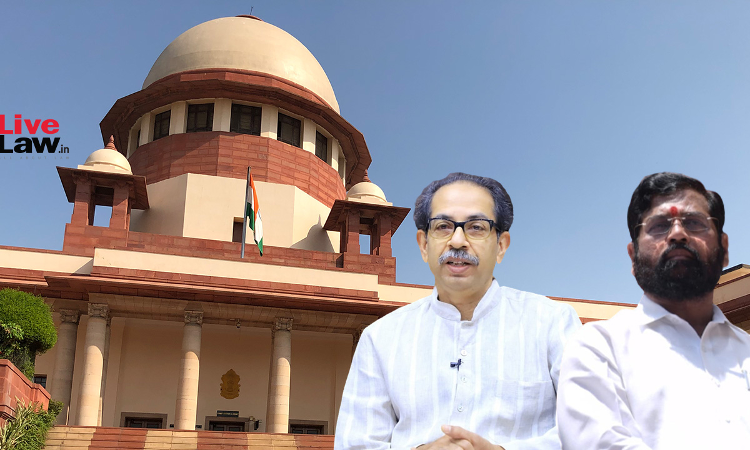Shiv Sena Case | Uddhav Side Urges Supreme Court To Restore Status Quo Ante As On June 27, 2022
Padmakshi Sharma
1 March 2023 8:45 AM IST

Next Story
1 March 2023 8:45 AM IST
In the Shiv Sena case, the Uddhav Thackeray side concluded their arguments before the Supreme Court on Tuesday.The matter was heard by a bench comprising CJI DY Chandrachud, Justice MR Shah, Justice Krishna Murari, Justice Hima Kohli, and Justice PS Narasimha. Tuesday's arguments were made by Senior Advocate AM Singhvi and continued by Senior Advocate Devadatt Kamat. Last week, Senior...
